
Gentleman's Agreement is a 1947 American drama film based on Laura Z. Hobson's best-selling 1947 novel of the same title. It concerns a journalist who poses as a Jew to research an exposé on the widespread anti-Semitism in New York City and the affluent communities of New Canaan and Darien, Connecticut. It was nominated for eight Academy Awards and won three: Best Picture, Best Supporting Actress, and Best Director.

Crossfire is a 1947 American film noir drama film starring Robert Young, Robert Mitchum and Robert Ryan which deals with the theme of anti-Semitism, as did that year's Academy Award for Best Picture winner, Gentleman's Agreement. The film was directed by Edward Dmytryk and the screenplay was written by John Paxton, based on the 1945 novel The Brick Foxhole by screenwriter and director Richard Brooks. The film's supporting cast features Gloria Grahame and Sam Levene. The picture received five Oscar nominations, including Ryan for Best Supporting Actor and Gloria Grahame for Best Supporting Actress. It was the first B movie to receive a best picture nomination.

To Kill a Mockingbird is a novel by the American author Harper Lee. It was published in 1960 and was instantly successful. In the United States, it is widely read in high schools and middle schools. To Kill a Mockingbird has become a classic of modern American literature; a year after its release, it won the Pulitzer Prize. The plot and characters are loosely based on Lee's observations of her family, her neighbors and an event that occurred near her hometown of Monroeville, Alabama, in 1936, when she was ten.

Eldred Gregory Peck was an American actor and one of the most popular film stars from the 1940s to the 1970s. In 1999, the American Film Institute named Peck the 12th-greatest male star of Classic Hollywood Cinema.

James Arthur Baldwin was an American writer. He garnered acclaim for his work across several forms, including essays, novels, plays, and poems. His first novel, Go Tell It on the Mountain, was published in 1953; decades later, Time magazine included the novel on its list of the 100 best English-language novels released from 1923 to 2005. His first essay collection, Notes of a Native Son, was published in 1955.

Darryl Francis Zanuck was an American film producer and studio executive; he earlier contributed stories for films starting in the silent era. He played a major part in the Hollywood studio system as one of its longest survivors. He produced three films that won the Academy Award for Best Picture during his tenure.

Nelle Harper Lee was an American novelist who wrote the 1960 novel To Kill a Mockingbird that won the 1961 Pulitzer Prize and became a classic of modern American literature. She assisted her close friend Truman Capote in his research for the book In Cold Blood (1966). Her second novel, Go Set a Watchman, has been confirmed to be an earlier draft of Mockingbird but was published in July 2015 as a sequel.
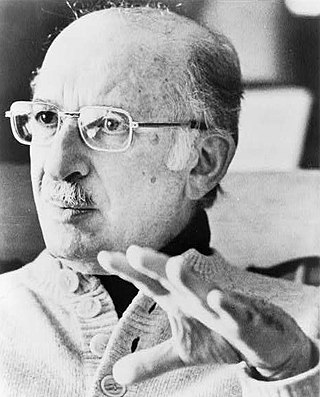
Bernard Malamud was an American novelist and short story writer. Along with Saul Bellow, Joseph Heller, Norman Mailer and Philip Roth, he was one of the best known American Jewish authors of the 20th century. His baseball novel, The Natural, was adapted into a 1984 film starring Robert Redford. His 1966 novel The Fixer, about antisemitism in the Russian Empire, won both the National Book Award and the Pulitzer Prize.

William Anthony Parker White, better known by his pen name Anthony Boucher, was an American author, critic, and editor who wrote several classic mystery novels, short stories, science fiction, and radio dramas. Between 1942 and 1947, he acted as reviewer of mostly mystery fiction for the San Francisco Chronicle. In addition to "Anthony Boucher", White also employed the pseudonym "H. H. Holmes", which was the pseudonym of a late-19th-century American serial killer; Boucher would also write light verse and sign it "Herman W. Mudgett".

The Plot Against America is a novel by Philip Roth published in 2004. It is an alternative history in which Franklin D. Roosevelt is defeated in the presidential election of 1940 by Charles Lindbergh. The novel follows the fortunes of the Roth family during the Lindbergh presidency, as antisemitism becomes more acceptable in American life and Jewish-American families like the Roths are persecuted on various levels. The narrator and central character in the novel is the young Philip, and the care with which his confusion and terror are rendered makes the novel as much about the mysteries of growing up as about American politics. Roth based his novel on the isolationist ideas espoused by Lindbergh in real life as a spokesman for the America First Committee, and on his own experiences growing up in Newark, New Jersey. The novel received praise for the realism of its world and its treatment of topics such as antisemitism, trauma, and the perception of history. The novel depicts the Weequahic section of Newark which includes Weequahic High School from which Roth graduated. A miniseries adaptation of the novel aired on HBO in March 2020.
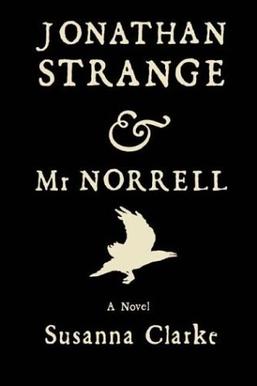
Jonathan Strange & Mr Norrell is the debut novel by British writer Susanna Clarke. Published in 2004, it is an alternative history set in 19th-century England around the time of the Napoleonic Wars. Its premise is that magic once existed in England and has returned with two men: Gilbert Norrell and Jonathan Strange. Centred on the relationship between these two men, the novel investigates the nature of "Englishness" and the boundaries between reason and unreason, Anglo-Saxon and Anglo-Dane, and Northern and Southern English cultural tropes/stereotypes. It has been described as a fantasy novel, an alternative history, and a historical novel. It inverts the Industrial Revolution conception of the North–South divide in England: in this book the North is romantic and magical, rather than rational and concrete.
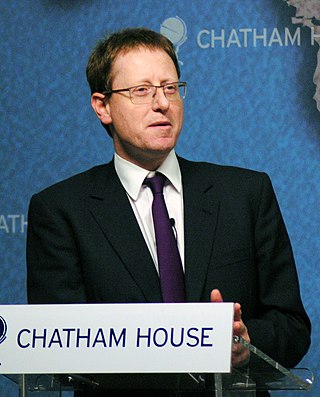
Jonathan Saul Freedland is a British journalist who writes a weekly column for the Guardian. He presents BBC Radio 4's contemporary history series The Long View. Freedland also writes thrillers, mainly under the pseudonym Sam Bourne, and has written a play, Jews. In Their Own Words, performed in 2022 at the Royal Court Theatre, London.

Dale Peck is an American novelist, literary critic, and columnist. His 2009 novel, Sprout, won the Lambda Literary Award for LGBT Children's/Young Adult literature, and was a finalist for the Stonewall Book Award in the Children's and Young Adult Literature category.
Laura Zametkin Hobson was an American writer, best known for her novels Gentleman's Agreement (1947) and Consenting Adult (1975).

John Franklin Bardin was an American crime writer, best known for three novels he wrote between 1946 and 1948.
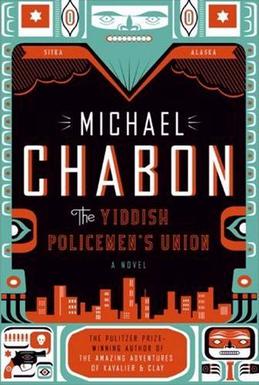
The Yiddish Policemen's Union is a 2007 novel by American author Michael Chabon. The novel is a detective story set in an alternative history version of the present day, based on the premise that during World War II, a temporary settlement for Jewish refugees was established in Sitka, Alaska, in 1941, and that the fledgling State of Israel was destroyed in 1948. The novel is set in Sitka, which it depicts as a large, Yiddish-speaking metropolis.

Sprout is a young adult gay novel by American author Dale Peck first published in May 2009. The novel depicts an openly gay teenage boy who moves to Kansas after his mother dies from cancer. While he struggles with harassment at school and two potential boyfriends, he has to decide if he will hide his sexual orientation in order to win a statewide essay-writing contest. An act of betrayal leads to the book's climax.
Herbert Clyde Lewis was an American novelist.

Nautical fiction, frequently also naval fiction, sea fiction, naval adventure fiction or maritime fiction, is a genre of literature with a setting on or near the sea, that focuses on the human relationship to the sea and sea voyages and highlights nautical culture in these environments. The settings of nautical fiction vary greatly, including merchant ships, liners, naval ships, fishing vessels, life boats, etc., along with sea ports and fishing villages. When describing nautical fiction, scholars most frequently refer to novels, novellas, and short stories, sometimes under the name of sea novels or sea stories. These works are sometimes adapted for the theatre, film and television.
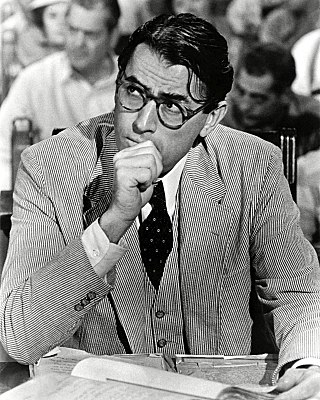
Gregory Peck (1916–2003) was an American actor who had an extensive career in film, television, radio, and on stage. Peck's breakthrough role was as a Catholic priest who attempts to start a mission in China in the 1944 film The Keys of the Kingdom, for which he received his first nomination for the Academy Award for Best Actor. In the same year, he played Count Vronsky in a radio adaptation of Leo Tolstoy's Anna Karenina. He followed this by starring in Alfred Hitchcock's psychological thriller Spellbound (1945) with Ingrid Bergman. In the late 1940s, Peck received three more nominations for the Academy Award for Best Actor for his roles as a caring father in The Yearling (1946), a journalist who pretends to be Jewish to write an exposé on American antisemitism in Gentleman's Agreement (1947), and a brave airman in Twelve O'Clock High (1949).


















